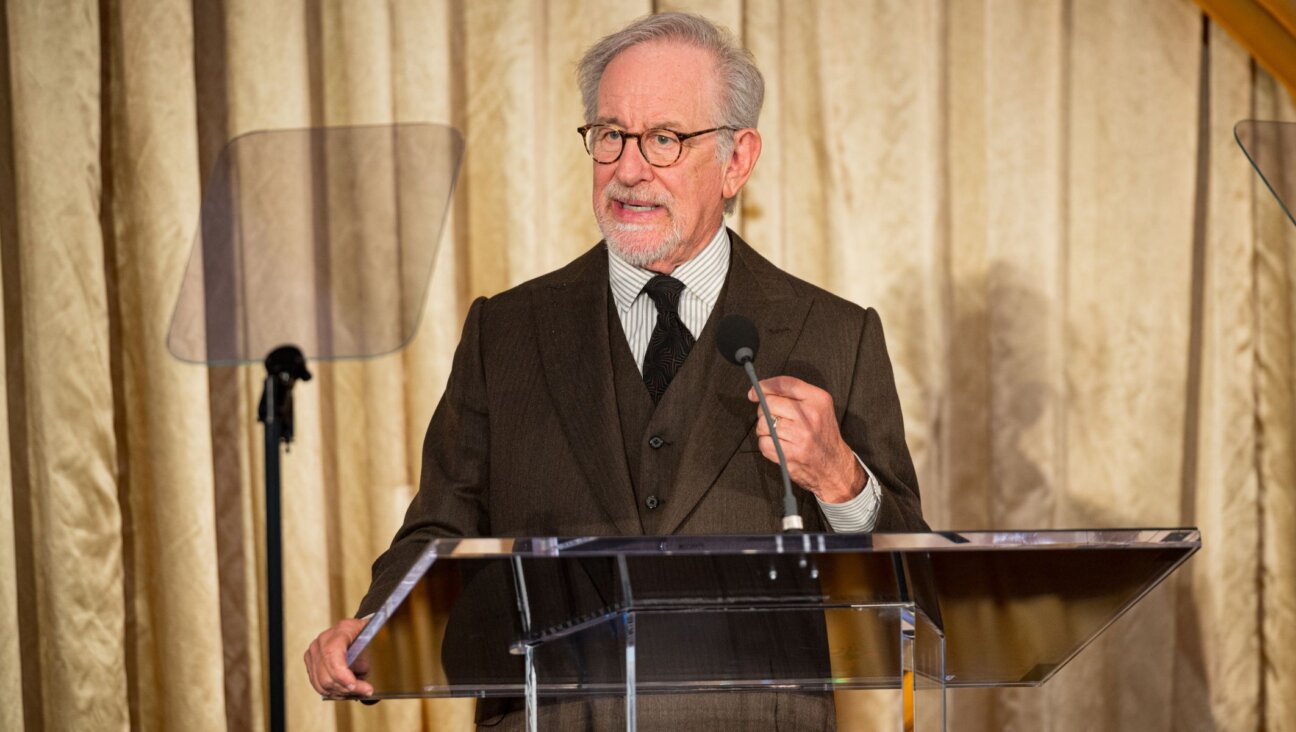Please Touch the Art
Hours before her troupe’s first public performance, in 2002, Adina Tal faced a quandary unlike any posed to other directors: How would her cast members know that the audience was applauding?
The scenario was not uncommon for the director of the theater group Nalaga’at (“Do Touch”), who, since forming the group in late 1999, has been dealt the difficult task of turning 12 deaf-blind Israelis into first-rate thespians. More than four years later, Tal has succeeded in ushering the deaf-blind community into the limelight and crafting what is said to be the only such company worldwide. And Nalaga’at — which will premiere June 23 in Boston before moving on to New York venues, including Symphony Space, and then to New Jersey — is not merely a showcase.
“It’s not like the deaf-blind are putting on the ‘Wizard of Oz’ and it’s kind of hokey and we’re saying that it’s good that they can do it,” said Brian Hect, booking associate at Symphony Space. “It’s a professional theater troupe.”
Back in 1999, a Tel Aviv center for the blind called the Beth David Institute received a grant for an amateur acting workshop. Most of the patients were people afflicted with Usher Syndrome, a degenerative genetic disease that causes early hearing impairment or deafness before progressing into blindness. A representative from the center approached Tal, a well-known Israeli actress and producer, about leading it. She did not know sign language and had no prior experience with the deaf-blind.
“It came out of the blue,” said Tal in an interview with the Forward. “I really don’t know what made me say yes.”
Tal hired individual interpreters to communicate with the cast members via tactile sign language, which consists of making various hand movements directly into the actor’s palms. And she taught the performers — who range in age from 30 to 50 — to stand with proper posture through weekly yoga exercises, to form facial expressions by sculpting each other’s faces, and to understand the music by placing their bodies next to a blasting amplifier so that, according to Tal, “they can hear the rhythm.” To convey the audience’s applause at the end of a show, Tal developed a system whereby an interpreter will continuously tap the first actor in a row, who will do the same to his neighbor, and so on.
The comic drama, “Light Is Heard in Zig Zag,” is a series of snapshots of the actor’s realities and aspirations. There is Jaffa resident Bat Sheva Ravenseri, 39, who is married with three children and fantasizes about becoming a famous actress and singer; Igor Oshorov, 46, who wants to be so rich that he could take the prettiest lady to dine at the finest restaurant; and Genia Shtasky, 52, an immigrant from the former Soviet Union who was once able to hear and longs to play the piano again. Each scene is performed mostly in Charlie Chaplin-esque mime to the accompaniment of music and brief explanatory voice-overs. While by now the actors are well versed in the scenes, interpreters are on hand to ensure that they know what is happening onstage. Following the show, the audience is invited onstage to interact with the cast.
Officially a nonprofit organization for a year-and-a-half, Nalaga’at has to wait until the two-year mark to apply for government aid. One goal of the upcoming trip is to raise enough funds to reach the $600,000 mark needed to expand services and open an office space.
But Tal and Eran Gur, the group’s business manager, have dreams beyond this. The two hope to open a for-profit deaf-blind center in Jerusalem, focusing on the highly attuned other senses of the deaf-blind, such as touch, smell and taste. As they envision it, the center will boast a theater, a spa with a focus on massages, and an elegant restaurant modeled on a Swiss dining spot where patrons sit in a darkened room and are served by the blind.
During their stay in the United States, which is being organized by the Israeli Foreign Ministry, members of the group will be hosted by the Perkins School for the Blind near Boston and the Helen Keller National Center for Deaf-Blind Youths & Adults in Sands Point, N.Y. Steven Rothstein, president of the Perkins School, saw the show last year at a deaf-blind conference in Canada.
“It highlights the abilities of the individual, not the disabilities,” he said. “And it’s theatrically powerful in and of its own right.”
















